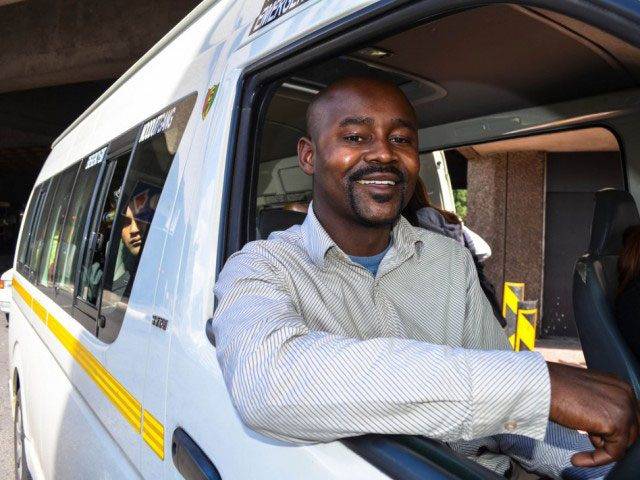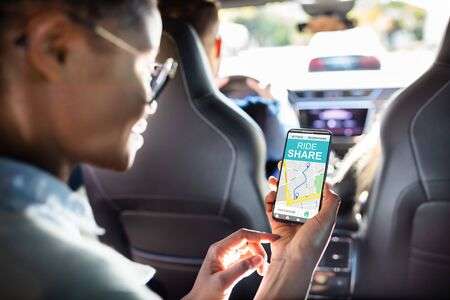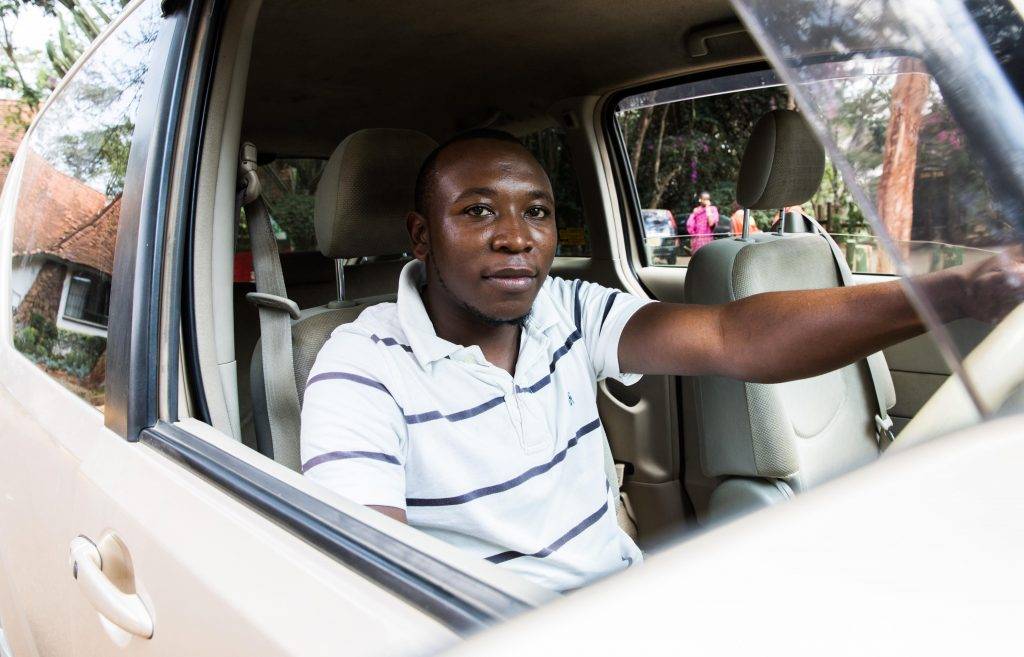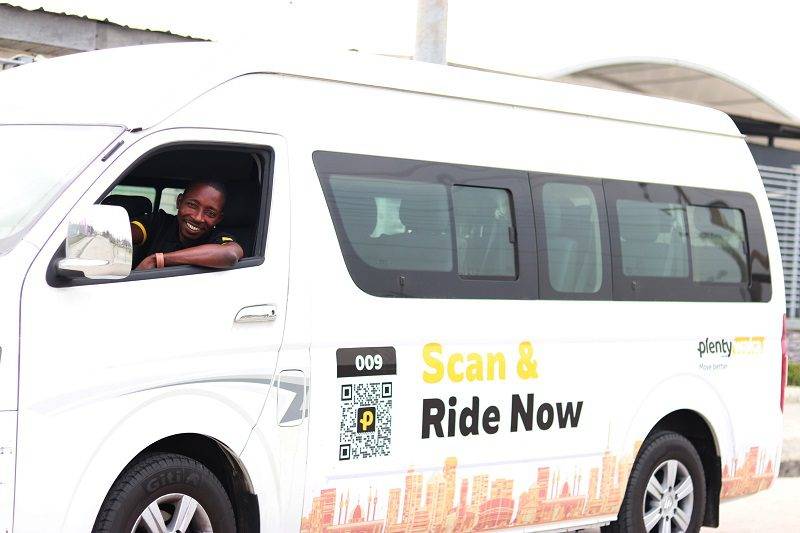Will The “Lagos Okada Ban” Be The Tinder That Finally Sparks Carpooling/Ride-Sharing To Life?

And so it came to pass that on the first day of the second month of the new decade (actually, the “decade” part sort of depends on who you ask), the much-discussed and much-maligned “Okada/Keke ban” came into effect in Lagos.
Since then, the task of getting around in what could be considered the world’s largest city without any recognisable, proper mass transit system has mostly gotten harder.
But these difficulties may actually be the perfect cue for a solution that has been largely ignored; a solution that may not necessarily be a fix-all but would certainly be a fix all the same. Think carpooling/ride-sharing, the relatively-inexpensive distant cousin to ride-hailing.

Since the Okada ban, the crippling rush-hour traffic jams that Lagos is known for have now worsened, the bus stops and terminals are packed full with frustrated commuters who have to wrestle with one another before they can land a tight spot in a rickety vehicle (mostly because there are way too many people than the available means of transit can handle).
Also, cab-hailing companies have opted to milk the situation for all it’s got, and much of the populace has been forced to take to endurance trekking which is not even an Olympic sport, to begin with.
But wouldn’t it be great if the bulk of people who frequently ply a certain route at a certain time didn’t have to show their fit-fam credentials or try to outmuscle everyone else before they can be on the move? It certainly would.
And wouldn’t it be even better if they can enjoy comfortable rides to their destination at their own convenience while paying roughly the same fare charged by the more pocket-friendly yet nasty options that are found in the notorious Danfo and Molue? It sure would.
Well, this appears to be a need that is screaming out to be met and one there is certainly an opportunity for carpooling; an arrangement in which a rider shares a vehicle with other riders. By infusing technology that allows people to easily book rides in real-time or schedule rides, that element of convenience is something that is sure to sit well with people.

It’s a sentiment shared by Damilola Teidi-Ayoola, who once ran a now-defunct carpooling platform known as GoMyWay before joining Co-creation Hub (CcHub) where she now functions as Director of Startup Support.
“I ran GoMyWay for about two years so I know that the solution is useful and valuable to people and it even existed before we applied technology to it,” she tells WeeTracker.
“Did it work? Yes, it did. People shared rides and we saw an increase in the average number of people sharing rides. Carpooling probably won’t completely solve the problem of commute [in Lagos], it may not replace mass transit as there are just so many people. But it would surely be a very helpful alternative, a means to an end.”
She adds: “The only competition for carpooling are the regular commercial buses or offline taxis, and offering the comfort and convenience of a bookable taxi at the price of Danfo easily helps it trump the competition. A number of people would use Uber to go to parties or outings but to go to work every day? I don’t think so.
“So because there aren’t many people filling that need, I feel like carpooling is invaluable and useful. But many vehicles would be required because the routes are fixed. Also, both the drivers and passengers would need to be vetted and verified just like we did at GoMyWay.”
Although carpooling is traditionally adopted for medium-to-long distance travel — as is evident in how GoMyWay operated inter-state routes during its heydays, and how Swvl, Little, and South Africa-based Jumpin Rides which raised USD 136 K in 2018 is currently operating — Teidi-Ayoola thinks carpooling can also work for intra-state travel especially in a place like Lagos where a ride from one end of the state to the central business district can easily become a very long, tedious journey.
Lagos has a population of around 20 million people crammed into a rather small space. There are hundreds of thousands of vehicles trying to find their way through a maze of roads that are far from adequate on a daily basis, plus close-to-zero waterway transit infrastructure, and a light rail transit system that is still less than 30 percent completed 13 years after construction started.

These factors weigh in significantly on why the roads are so saturated. And to get around this; to get people moving; to avoid stalling productivity, commercial motorcycles and tricycles became a necessity by default.
And bike-hailing startups eventually came into existence to formalise a sector that has been largely unregulated for decades. But even they too were cut down by the directive that outlawed commercial motorcycles/tricycles in major routes in the state. One of the players, Gokada, has been forced to let go of most of its staff and is now frantically attempting a logistics/water transport pivot.
Yet somewhere in the “mega-city masterplan”, it makes more sense to put more vehicles on roads that are already saturated and some more boats on waterways that are perpetually limited with regards to where they can reach and who/what they can move.
Well, this our life now. The Lagos State Government has made it clear that there is no going back on the directive. And as necessity is often touted as the mother of invention, perhaps now is also a good time to put on the figurative thinking hat and explore an adaptive, alternative solution. Yes, something like carpooling.
The good news is that a number of platforms are beginning to step up. Between Plentywaka, StaffBus, Soole Rides, and the scarcely-visible Jekalo, there are certainly efforts being made to put carpooling/ride-hailing on the same pedestal as its better-known, pricey cousin; ride-hailing/cab-hailing. And the recent Okada ban, while being a source of pain to the masses, on one hand, can also provide the push for some game-changing innovation.
StafBus, which cheekily refers to its users “StaffBussers”, is already helping people who ply certain fixed routes to get to work daily to go to work and get back from work conveniently.
Additionally, Plentywaka, which only kicked off operations last year with a single route and a novel bus-hailing app which allows bookings and payments, has recently expanded its routes to serve more commuters. All users have to do is be at a particular place at a particular time. And the platform is just starting to catch on because of its super comfy buses and unbelievably cheap fares.

Besides those, Soole Rides may only still be in the testing phases with a single route (Lagos-Ibadan) on offer, but the possibility of meeting new needs within Lagos is something that surely can’t be ignored.
Precious Okhimamhe of Plentywaka is optimistic about the opportunities that abound with ‘carpooling-like’ platforms at this time, sensing that yet more e-hailing platforms would launch.
“In light of the recent ban on bikes, and tricycles, Lagosians are sure to expect a spike in more vehicle-hailing services, carpooling inclusive as the pricing would be less expensive,” she says.
“For people who cannot afford the regular charges for cab-hailing services, the best option would be to share a ride with others so the fare can be split. This already is a business opportunity.
“We have colleagues sharing rides with one another after work and regular cars picking up riders on their way to work for a fee because of the comfort. Thus, there is no doubt that it can work with the help of technology. Presently, we are already thinking of ways where we can be a part of this too as our core mission is to provide commuters convenience, safety and comfort in their daily rides at affordable rates.”
For Tunde Egbetola, who is CEO at Soole Rides having co-founded the platform with Mayowa Palmer to safely link riders and drivers going to the same city using a mobile app, intra-city carpooling looks like a decent opportunity though he’s not certain that it would be a winner.
“We are only focused on city-to-city even though we can turn on in town carpooling in our app right away, he tells WeeTracker in an emailed response.
“If the correct opportunity presents itself we will probably consider it. I am not 100% convinced that carpooling can work fluently in Lagos, but for morning and evening commute, it sure is a no brainer.
“For it to work properly I think you need to use a combination of realtime and scheduled booking. Then a lot of thoughts and massaging, to fine-tune the final product. With the ban in effect, we are sure several companies will come up trying to solve the problem and that is good for Lagosians.”